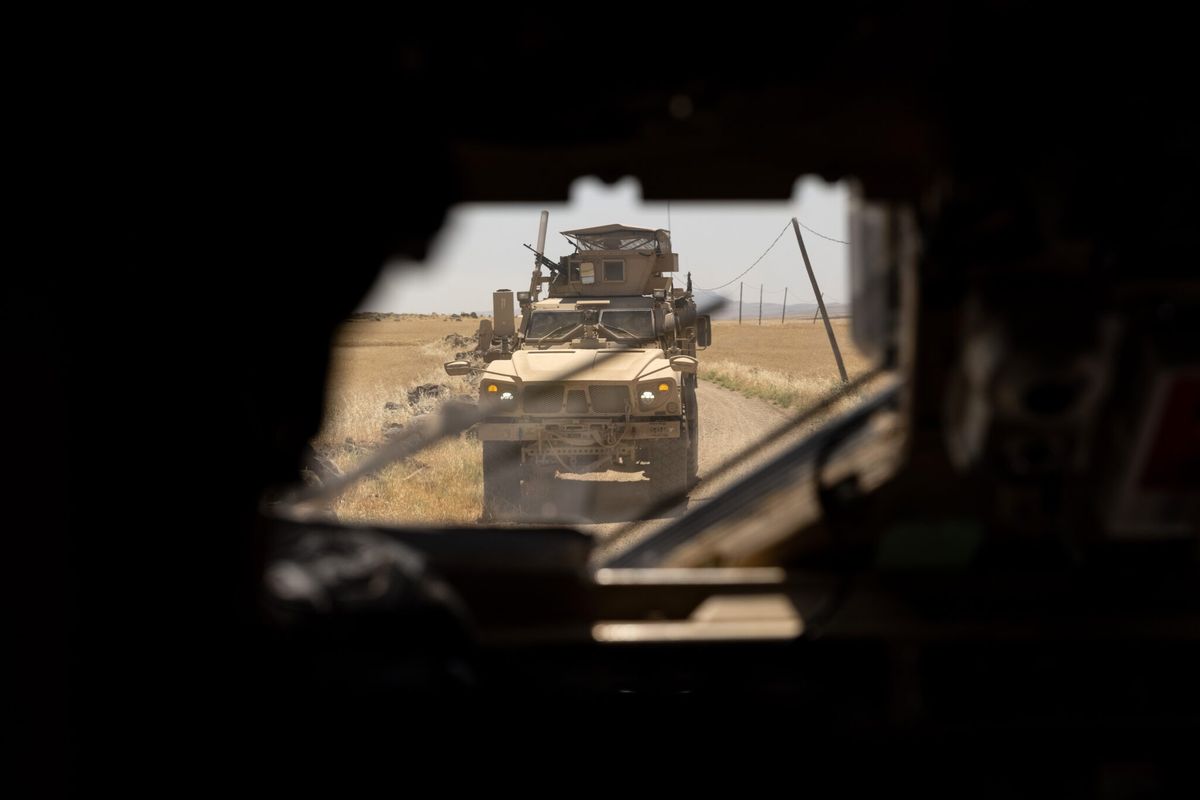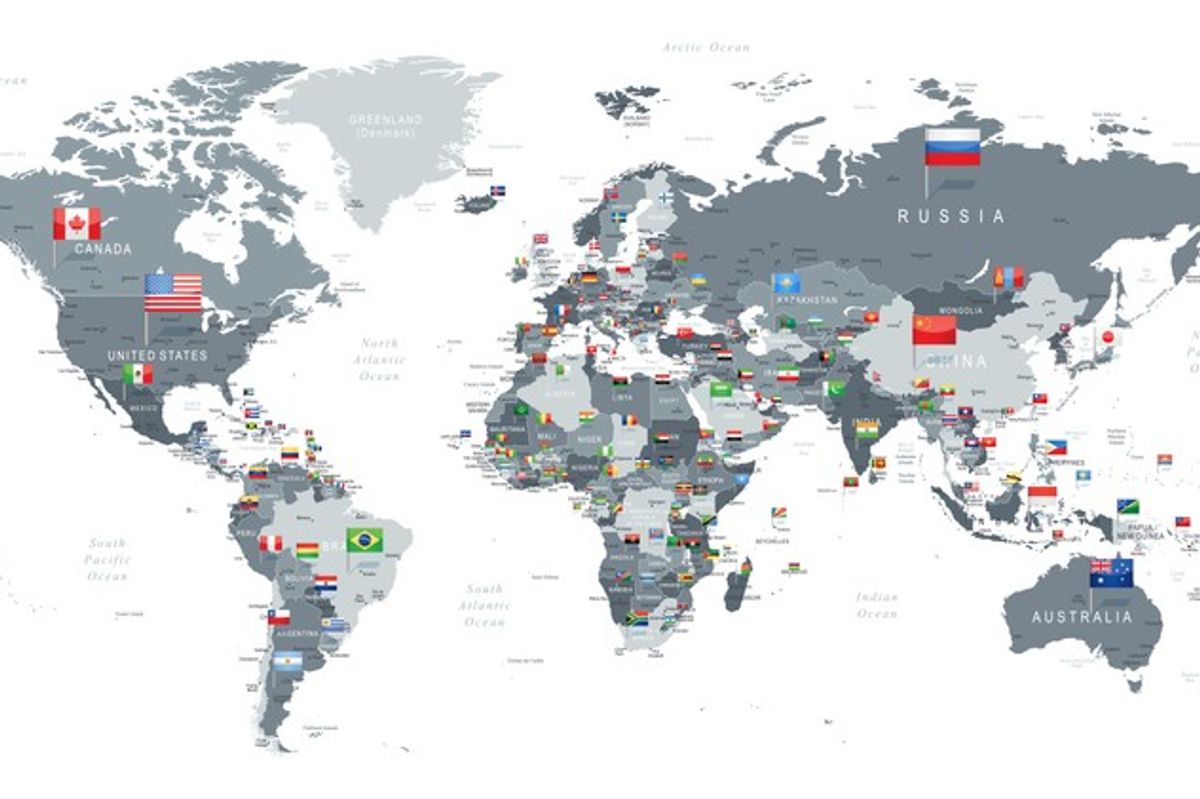The long-awaited report detailing Britain's role in the Iraq War was finally published on Wednesday, with the seven-year inquiry finding the United Kingdom relied "on the basis of flawed intelligence and assessments” and turned to military action before “the peaceful options for disarmament had been exhausted.”
“It is now clear that policy on Iraq was made on the basis of flawed intelligence and assessments. They were not challenged, and they should have been,” the committee’s chairman Sir John Chilcot said in a statement on Wednesday.
The report, which fills 12 volumes and is 2.6 million words long, is highly critical of the key choices made by former British Prime Minister Tony Blair in the run-up to the decision to go to war alongside the United States in Iraq in 2003 and the aftermath of the invasion. Between 2003 and 2009, 179 British military personnel died in Iraq. In a lengthy press conference in response to the report, Blair said he took full responsibility for the failings made in Iraq concerning the war’s planning and process, but that he does not regret the decision to invade.
"If I was back in the same place, with the same information, I would take the same decision,” Blair said.
The former prime minister said the report featured “serious criticisms” but also showed that “there were no lies, Parliament and the Cabinet were not misled, there was no secret commitment to war, intelligence was not falsified and the decision was made in good faith.”
Blair added that he believes he made the “right decision and the world is better and safer as a result of it.”
Chilcot said the inquiry also established that the threat posed by "Iraq's weapons of mass destruction" was presented with "a certainty that was not justified" and that at the time of the invasion, "there was no imminent threat from Saddam Hussein." The report also “concluded that the circumstances in which it was decided that there was a legal basis for UK military action were far from satisfactory.”
As for post-invasion planning, Chilcot said the inquiry found that the planning and preparations for Iraq after Hussein “were wholly inadequate.”
No weapons of mass destruction were ever found, and Iraq has been wracked with instability, sectarian violence, and the rise of ISIS since the invasion.
A "vital purpose" of the inquiry, according to Chilcot, was to "identify what lessons should be learned from experience in Iraq." The report points to a few key points about the UK's relationship with the U.S., noting that Blair "overestimated his ability to influence US decisions on Iraq."
"The UK’s relationship with the US has proved strong enough over time to bear the weight of honest disagreement. It does not require unconditional support where our interests or judgements differ," Chilcot said.
The report also highlights a July 2002 memo sent to U.S. President George W. Bush by Blair, in which the former prime minister wrote that “I will be with you, whatever.” But, Blair wrote, “this is the moment to assess bluntly the difficulties.”
“The planning on this and the strategy are the toughest yet. This is not Kosovo. This is not Afghanistan. It is not even the Gulf War,” Blair wrote in his “Note on Iraq” to Bush, focusing on the “political context for success” as he noted that “Getting rid of Saddam is the right thing to do.”
Calling it the "most agonizing decision" he took as British prime minister, Blair said in a press conference after the report was released that he accepts "full responsibility" for joining the U.S.-led invasion of Iraq in 2003.
“The intelligence assessments made at the time of going to war turned out to be wrong. The aftermath turned out to be more hostile, protracted and bloody than ever we imagined. The coalition planned for one set of ground facts and encountered another, and a nation whose people we wanted to set free and secure from the evil of Saddam, became instead victim to sectarian terrorism,” he said. “For all of this I express more sorrow, regret and apology than you may ever know or can believe.”
In March 2003, the British Parliament voted to authorize the invasion, backing Blair. The former prime minister has been beset by accusations from critics that he intentionally lied in making the case for the 2003 invasion by claiming Saddam Hussein had weapons of mass destruction.
The Iraq Inquiry, set up in 2009 by Blair's successor, then-Prime Minister Gordon Brown, took more than seven years to publish its report. It was originally meant to take a year to complete. The committee took evidence from over 100 witnesses and sifted through thousands of documents, and ultimately cost about $13 million.
Before releasing the report on Tuesday, Chilcot said the main lesson that emerged from the UK's role in the Iraq War was that careful "analysis and assessment" is needed before military action is taken in the future.
"The main expectation that I have is that it will not be possible in future to engage in a military or indeed a diplomatic endeavor on such a scale and of such gravity without really careful challenge analysis and assessment and collective political judgment being applied to it," he told the BBC before the report was issued.













